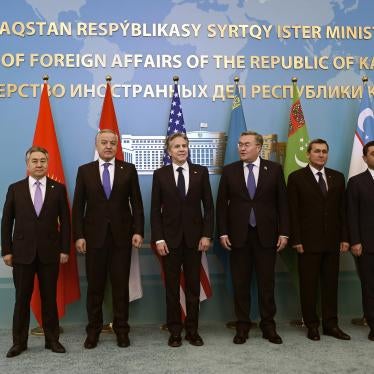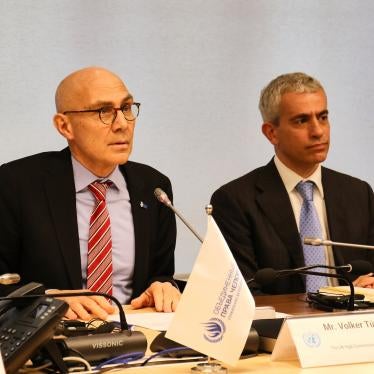Kazakhstan’s UPR took place against the backdrop of a serious decline in its rights record, with authorities cracking down on free speech and peaceful dissent, imprisoning government critics, and tightening controls over freedom of association, religion, and assembly. Claims by the government that the “promotion and protection of human rights and fundamental freedoms…remain the highest priorities” ring hollow in the face of this reality on the ground.
Kazakhstan regrettably rejected many of the UPR recommendations that urged changes to legislation restricting fundamental civil and political rights. Such key recommendations included reviewing the Law on Religion to bring it into conformity with international standards; the new Criminal Code provisions infringing on freedom of assembly and association; legislation criminalizing libel and insult; and the recently adopted trade union law to ensure workers’ rights are adequately protected. These recommendations represent an unequivocal message by other states that Kazakhstan should engage in meaningful legal reforms to ensure that both law and practice comply with the country’s international human rights commitments.
We note Kazakhstan’s acceptance of many other recommendations, but are troubled about the government’s assertions that it has already implemented or is in the process of implementing some of these recommendations, as such assertions are not supported by the facts on the ground.
For example, despite Kazakhstan’s assertion that it has already implemented recommendations to provide a clear and precise legal definition for the offence in article 164 of the Criminal Code, (an overbroad ‘incitement’ offence which authorities have misused to imprison government critics), the new Criminal Code broadened the scope and penalties for the offence. Kazakhstan also claims that authorities engage in prompt, thorough and impartial investigations into “all allegations of torture,” yet impunity for torture remains the norm. Kazakhstan also asserted it had already implemented a recommendation to cease the practice of closing, suspending or blocking opposition print and online media publications, when as recently as December 2014, authorities closed down yet another critical journal.
Human Rights Watch regrets that Kazakhstan did not avail itself of the important opportunity provided by the UPR to commit to address the full range of valid concerns about its rights record raised by states during the review. We call on the government to reconsider its approach and to engage in a genuine effort to undertake these much needed reforms.








